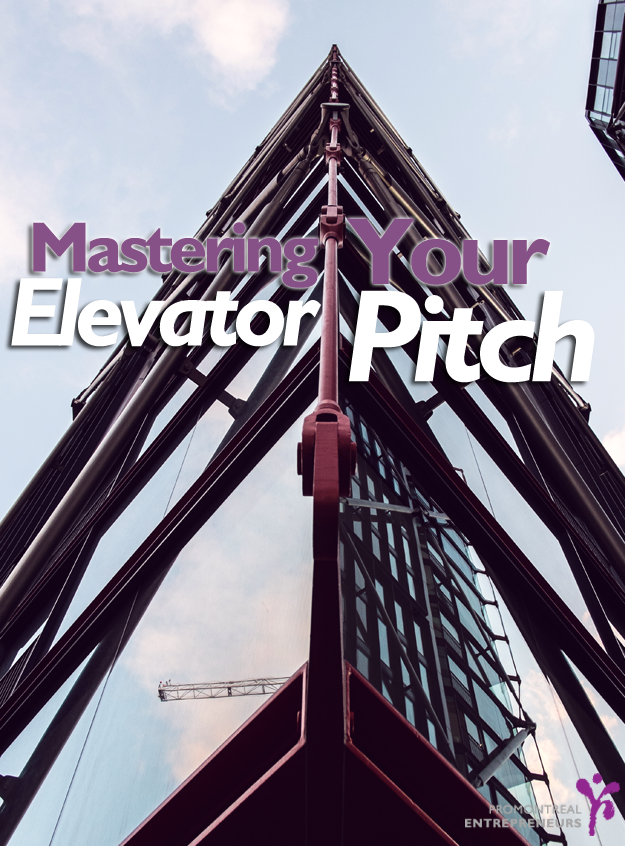
An elevator pitch is an ice breaker that will hopefully lead into a deeper dialogue about yourself and your start-up. It should be delivered in 60 seconds, the average time of an elevator ride. Your main goal in this pitch is to convey important information about yourself and your business, and encourage questions and interest from your prospect. Since you have a tight time frame, you should rehearse your pitch a lot! Ideally, your elevator pitch should be separated in 5 parts:
- Who you are: “My name is Katherine and I’m the Program Manager at ProMontreal Entrepreneurs.”
- What you do: “I provide coaching and information on the entrepreneurial ecosystem for start-ups in Montreal. I also manage a start-up fund.”
- Elaborate: “I have guided [business name] since their very beginning, and I have helped them with identifying investors and setting them up with amazing mentors. Years later, they are one of the most competitive companies in their field.”
- Leave them wanting more. Elevator pitches are meant to be short, so don’t try to pack in too much. Just enough to peak curiosity and hopefully have a follow-up meeting.
- Closure: Stay in touch. Give out a business card and send them an email about something that helps them. “I really enjoyed meeting you. Here is my card, I’ll be sure to send you the address to that restaurant I was talking to you about.”
These are the basic guidelines for a successful elevator pitch. Here are some dos and don’ts to help you build a good pitch:
Do
- State some names: universities, awards, business name: you need to give the listener something to remember you by. You should try to say your business name a few times in your pitch.
- Show your excitement and enthusiasm about your start-up. Be positive. State your goals, accomplishments, and positive experiences. Don’t say negative things about past projects, employers or other start-ups.
- Be confident
- End with a question. Your elevator pitch is not a one sided monologue, it is an interaction. After your presentation is over, ask a question to the person, including them in the conversation.
- Sound rehearsed. Your elevator pitch should sound like a conversation, not a prepared speech. Be natural
- Don’t hesitate to develop different versions of your Elevator Speech for different situations and audiences.
- Speak for too long. Your pitch should be one minute long at the most. The more you talk, the more chances you have of boring the other person.
- Don’t forget to include your competitive advantage also known as your Unique Selling Proposition (USP)
- Try to sell your product. This is where people will lose interest in you. An elevator pitch should, once again, be conversational: you don’t want to put any pressure on your prospect, or make them feel like you are trying to close a sale.
 Email This Post
Email This Post


